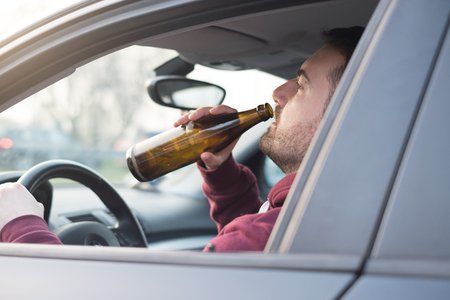Smartphone Breathalyzers Take a Step Back

You may have heard friends talking about the pocket-sized breathalyzer that would check your blood alcohol concentration (BAC) via an integrated smartphone app. The product exploded in popularity after appearing on the hit TV show Shark Tank in 2014, receiving $1 million in investment funding from the show’s hosts. The only problem was that the device did not work as advertised.
The Breathometer device was actually underreporting the user’s level of intoxication. While the device might report that you are below the legal driving limit, your actual blood alcohol concentration might be much higher. In a nutshell, the device’s inaccurate BAC readings could contribute to poor decision-making or over-the-limit driving, the very outcome it was intended to prevent.
Because of Breathometer’s tenuous reliability, the FTC ruled that the company will no longer be allowed to market the accuracy of its product without conducting more extensive research. Furthermore, the company would be required to offer a refund to customers who purchased the device, which had a retail price of $50.
So what does this mean for Georgia drivers?
First and perhaps most importantly, this is a wake up call for thousands of drivers who believe their portable breathalyzer will always display accurate results. Because the FTC report found that factors like humidity and temperature can drastically affect readings, users should be wary of using this device as a last line of defense against DUIs.
In the case that you are pulled over for a suspected DUI and blow over the limit, you may not be able to use the device’s inaccuracy in your defense. There is no legal precedent that suggests that an inaccurate test from a personal breathalyzer could help you get out of a DUI. In most cases, you are still responsible for operating the vehicle, no matter who or what told you it was safe to drive.
The legal driving limit in Georgia is 0.08% blood alcohol concentration. Under most circumstances, exceeding this limit will result in a DUI charge and a night in jail. While every defendant has mitigating circumstances that account for their state of intoxication, a faulty personal breathalyzer will probably not hold up as a reasonable defense. Unfortunately, these devices are not foolproof, so their results should be taken cautiously in any scenario.
The only real defense against a DUI is refusing to step into the driver’s seat. Calling a taxi or ride-sharing service like Uber is also a great way to ensure that you won’t end up in legal trouble.
For the times you do find yourself with a DUI charge, The Law Office of Samad K. Mubeen is here to help. For more than 25 years, our team of high-quality attorneys has served the Atlanta community and helped hundreds defend themselves against criminal charges. For more information, contact our team today at 404-872-4252 and schedule a consultation with one of our legal professionals.
